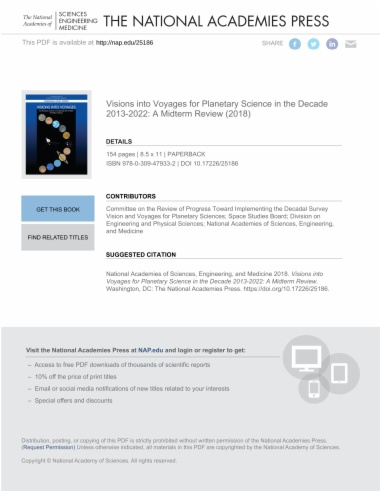

In spring 2011 the National Academies of Sciences, Engineering, and Medicine produced a report outlining the next decade in planetary sciences. That report, titled Vision and Voyages for Planetary Science in the Decade 2013-2022, and popularly referred to as the "decadal survey," has provided high-level prioritization and guidance for NASA's Planetary Science Division. Other considerations, such as budget realities, congressional language in authorization and appropriations bills, administration requirements, and cross-division and cross-directorate requirements (notably in retiring risk or providing needed information for the human program) are also necessary inputs to how NASA develops its planetary science program.
In 2016 NASA asked the National Academies to undertake a study assessing NASA's progress at meeting the objectives of the decadal survey. After the study was underway, Congress passed the National Aeronautics and Space Administration Transition Authorization Act of 2017 which called for NASA to engage the National Academies in a review of NASA's Mars Exploration Program. NASA and the Academies agreed to incorporate that review into the midterm study. That study has produced this report, which serves as a midterm assessment and provides guidance on achieving the goals in the remaining years covered by the decadal survey as well as preparing for the next decadal survey, currently scheduled to begin in 2020.